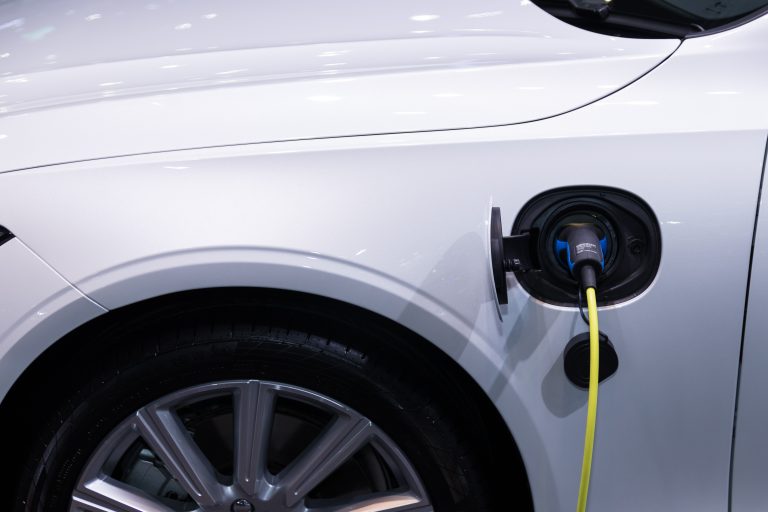Blue skies by the day and a star-studded spectacle by night were the simple joys of life that most Indian cities had forgotten about till the national lockdown to check the spread of Covid-19, came about. Over the course of the past several weeks since March 24, pollution levels have come down drastically which may indicate the future of electric mobility in the country, something that has been publicized as a solution against vehicular emissions causing pollution.
The pandemic has shaken every industry across the board, the EV industry is no exception but talks about environmental deterioration and climate change has been a hot topic well before the pandemic. The lockdown has increased awareness of the importance of reducing carbon emissions and may push people to choose a more environmentally friendly as well as sustainable technology once the situation settles down.
Electric vehicles have been increasing their presence the world over with the United States, for instance, selling more EVs than cars with a manual transmission in all of 2019. Norway often referred to as a pioneer in clean mobility recently extended subsidy on electric cars up to a certain price point for another year. India may have approached this sector a little late but 2019 was an eventful year with new players and brand new products. And while the Covid-19 pandemic may have slammed the brakes on the auto industry in general, there is a slight potential for it to be a blessing in disguise for the electric vehicle space in India and across the world in the times to come.
With countries getting used to the ‘new normal‘, concepts like social distancing, environmental consciousness, and links between pollution and viruses could result in a boost for electric vehicles overall. Perhaps some would push ahead with their plans to buy a new car, which would also translate to a safety measure against the spread of the coronavirus outbreak (by avoiding public transport).
Many Governments, including India, are aiming at making their country a hundred percent EV nation, while the achievability of this target is uncertain, the outlook remains optimistic. Union Minister Nitin Gadkari has said that India will become the manufacturing hub for electric vehicles in the next five years. While addressing a webinar on, “India’s electric roadmap post-COVID-19”, the Union Minister was certain that the business environment will improve as the sales are expected to rise.”
As of now, only 25% of Indians own a vehicle of their own. Of this, 76 % of the vehicles are 2 wheelers i.e. 23 crore vehicles. India is currently the largest 2-wheeler market in the world and has sold 21.2 million vehicles in the previous year. This data suggests that despite being an under-penetrated market, India adds a record number of vehicles on a yearly basis.
Overall, as the sales of two-wheelers increase, electric vehicle sales will also grow in tandem or even faster than the ICE counterparts. According to a study conducted by Frost and Sullivan – e-rickshaws, e-autos, and e- two-wheelers are the most promising segments for electrification in India and are supposed to account for over 4-million sales by 2025. The study also suggests that 30-40 percent of scooters in the country will be electric in 7-8 years.
POWERING THE EVs
For EVs, the most crucial component is the battery. No wonder then that competition is getting fiercer among global automobile OEMs and battery manufacturers to get control over the electric vehicle battery market. However, this competition is also yielding technological breakthroughs.
In the automotive paradigm, lithium-ion battery technology stands at the center of innovation. There has been a significant amount of progress in the improvement of lithium-ion battery technology.
Evolute a front runner in battery packs & battery management systems with a legacy of over 40 years, also has an Electric Vehicle Battery range for chemistries like Li-ion (Lithium-ion), Li-Po (Lithium Polymer), LiFePO4 (Lithium Ferrous Phosphate). With customization offered as per requirements, including the battery management system and protection circuit module, it enables usage of the green energy-efficient electric vehicles which are much easier on Mother Nature across industries including automobiles.
It is believed that post COVID, most countries will want to move more towards Energy security and self-reliance. Also considering India’s and the world’s dependency on China for different components including batteries and other parts, partnerships among the industry players to create and sell complete eco-system to end customers can be a major milestone in selling the EV products with Made in India tag. Leading the pack in Energy Storage & Battery Management System, our Electric Vehicle Battery solutions are designed and manufactured in our Department of Scientific and Industrial Research (DSIR) approved R&D center and state-of-the-art manufacturing facility in India itself which is much in line with the Make in India mission.
The pandemic might even prove to be an opportunity, with at least some governments, including those of India, Germany, and France, using virus recovery funds to help accelerate a transition from internal combustion engines to battery-powered alternatives.
We are living in a world which is very dynamic, nothing is permanent. We are growing and evolving constantly with newer and more advanced technologies coming up every other day. With innovation at its forefront and with a view to finding the most sustainable power and charging solution we can be sure that the world will definitely see an alternative battery charging solution soon. We believe in the next few years we will get a lot of other chemistries in this E-Mobility sector, batteries like graphene batteries, aluminum with water batteries, etc are being developed across the world.
Based on the current scenarios and the increased awareness about environmental health, soon renewables along with robust battery storage will be considered a great alternative to combustible fuel. In the next phase, we can expect the EV segment growing at a faster pace in India, with a focus on mass mobility and last/first-mile commute.
References:
https://www.bloombergquint.com/technology/the-electric-car-battery-boom-has-screeched-to-a-halt-for-now
https://www.counterpointresearch.com/competition-driving-innovation-ev-battery-market/





